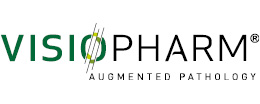Utilization of Deep Learning is Growing in Digital Pathology
 Digital Pathology is undergoing a revolutionary change with the introduction of state-of-the-art pattern recognition via/with deep learning. The transition from feature engineering and classical machine learning to end-to-end deep learning has happened at a rapid pace. Some of this fast adoption rate can be attributed to the improved results that deep learning can provide to pathologists while its use as a decision support tool in case management organization is also a driver on the horizon.
Digital Pathology is undergoing a revolutionary change with the introduction of state-of-the-art pattern recognition via/with deep learning. The transition from feature engineering and classical machine learning to end-to-end deep learning has happened at a rapid pace. Some of this fast adoption rate can be attributed to the improved results that deep learning can provide to pathologists while its use as a decision support tool in case management organization is also a driver on the horizon.
In addition, as Graphical Processing Units (GPUs) gain more computational power, the parallelization required for execution and training of deep learning algorithms continues to improve. This increased performance and decrease in cost of these once expensive “gaming” GPUs have opened a large market for deep learning in digital pathology.
Deep learning is more than a classifier
Based on the adoption of deep learning one might be inclined to think that deep learning is just another specific type of classifier such as a Random Forest or K-Nearest Neighbor which have specific rulesets for functionality. However, deep learning is a whole scientific field and there are many different implementations of deep learning frameworks and architectures which can yield a spectrum of results from poor to excellent. When choosing a provider of deep learning, you should be assured that the neural network architecture they are using is state-of-the-art as the field has moved extremely fast in the last several years.
Visiopharm has taken the approach of including multiple networks for deep learning in our AI Deep Learning package. The reason for this inclusion is that some deep learning networks are good for one bucket of tasks while other networks are good for a second bucket of tasks and so on. Limiting the user’s choice to a single network is essentially limiting their work to a single bucket and thus reducing the places deep learning can be effective for their science.
Flexibility in deep learning is required for optimal performance
Deep Convolutional (or Neural) Networks themselves also have architectures that can be modified so that deep learning is optimized for a given image analysis task, but this requires intimate knowledge of deep learning and its implementations in Python or another programming language. Visiopharm always prides itself on providing its customers with a highly configurable toolbox and deep learning architectures have been added to this list of customizations with the release of AI Architect.
AI Architect is an advanced module that lets the user optimize deep learning networks for their needs. This toolbox allows users to enhance the performance of deep learning, speed up deep learning and provides solutions for training when data sources are limited. The best part about the AI Architect: no programming knowledge necessary! The user gets an intuitive GUI from within our AI Deep Learning Author that provides the user with an easy to use suite of settings to adjust AI network architecture to suit their scientific needs.
So, whether you have previous practical experience with deep learning, just knowing the basics, or just starting to consider using deep learning in your research, you can use our state-of-the-art deep learning-based platform in your research!
Contact Visiopharm for a demo!
Join our webinar: Diving deeper into deep learning in image analysis
Have you heard of deep learning in digital pathology? Do you know what it is used for and what differentiates the providers of deep learning technology in digital pathology marketplace? Tune into our webinar the 29th of May to find out what Visiopharm is doing to separate it from the pack in deep learning for digital pathology.
11 AM CEST
10 am PDT | 1 pm EDT | 7 pm CEST
About the authors
Dr. Ben Freiberg, PhD, Visiopharm, Vice President Research Product
Ben Freiberg has a PhD in Immunology from the University of Colorado and have been imaging in one form or another since 1995. He has been at Visiopharm for 4 years focused on solving the digital pathology needs of customers in the USA. He has recently been appointed VP of Research Product where he oversees product management of Visiopharm’s image analysis platforms.
Jeppe Thagaard, Industrial Ph.D. Fellow, Visiopharm & Technical University of Denmark (DTU)
Jeppe has a background as a Biomedical Engineer specialized in advanced machine leaning and image analysis. He is the lead developer of the Visiopharm deep learning platform and academic researcher within deep learning and histology. Jeppe is enrolled as an Industrial Ph.D. fellow at DTU researching novel deep learning algorithms for pathology in collaboration with Visiopharm and Department of Pathology, Rigshospitalet University Hospital, Denmark.
Follow Visiopharm on LinkedIn | Twitter
Source: Visiopharm
Comments (1)
Jared N Schwartz


































Cancer Case’s growing in pathology as is dementia as is use of wide range of molecular diagnostics but the success stories are few. The potential is great but early hyping and suggesting useful solutions are right around the corner I believe detrimental to continuing investment as premature expectations not realized in near term. AI is going to be crucial tool in Medicine if given time to develop and provide appropriate communication of its potential value and YES risks. We must be transparent. We must be always focused on patients best interests. ☝️I am an optimistic👍 Jared